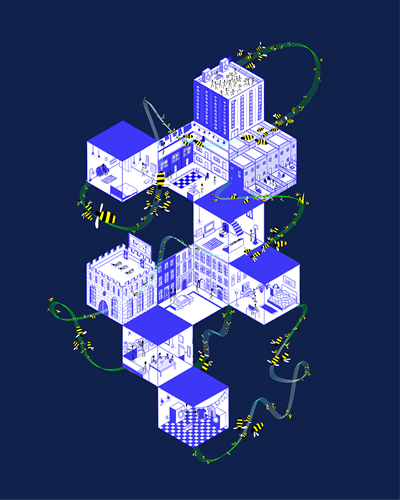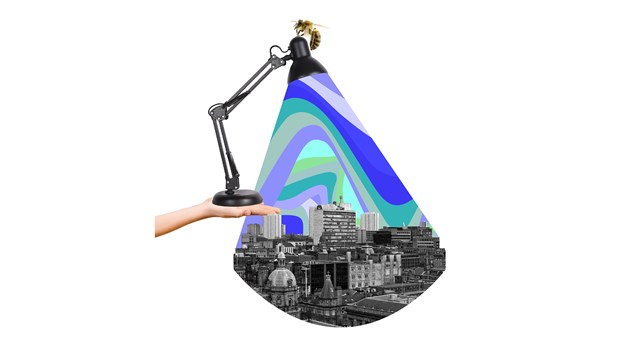GLOW
ENERGY NESTED BIO SYSTEM FLOWS FROM THE HOME TO THE HUB

The Project
The GLOW project is funded by the Engineering and Physical Sciences Research Council (EPSRC) and will create a new socially smart computational system to equitably and dynamically communicate household energy demand at a neighbourhood scale. Drawing on new insights from Glasgow and Bristol residents’ approaches to managing energy in their homes as well as their perceptions of what this means in their neighbourhoods, a new multidimensional evidence base on the social and spatial characteristics of energy demand behaviour will be developed. The computational system will be shaped by this first of a kind of evidence base as well as theoretical insights from Social Practice and Social Identity Theory to biomimetic approaches in the study of other species’ communication mechanisms such as bees that have evolved an efficient way to communicate collective resource needs.
The project is led by Prof. Sonja Oliveira, Department of Architecture, University of Strathclyde, Glasgow in collaboration with academic partners, the University of Bath (Dr. Chatzimichali) the University of the West of England (UWE), Bristol (Dr. Barakat, Dr. Badarnah, Dr. Perez Hernandez), the University of Bristol, Bristol (Dr. Atkins) and non-academic partners. The project team will be working closely with Steering Group partners, including Energy Systems Catapult, Energy Super Hub Oxford, Kenza Engineering, Community Infrastructure Group, SNUG, Bristol Housing Festival, Stride Treglown as well as Stellenbosch Institute for Advanced Study, Purpose and Desire, Oxford Brookes University, Utah State University / Centre for Atmospheric and Space Sciences CASS and The University of Texas at Arlington.

Benefiting residents and communities toward net-zero carbon futures
Findings will benefit residents by enabling a user-oriented and evidence-based approach to managing home energy. Housing developers and construction professionals will better understand how energy is used in homes and what socio-spatial configurations support targeted net-zero design and development. Energy policymakers will benefit from gaining novel insights and a rich evidence base that offers social and spatial knowledge, household behavioural patterns, and social responses to better inform a sustainable future regarding energy demand management.
Pushing boundaries for ethical, sustainable home energy behaviour change
We seek to push the boundaries of interrelated fields of practice and research, providing new pathways, resources and intelligence that will have a legacy in supporting meaningful and ethical, sustainable home energy behaviour change.